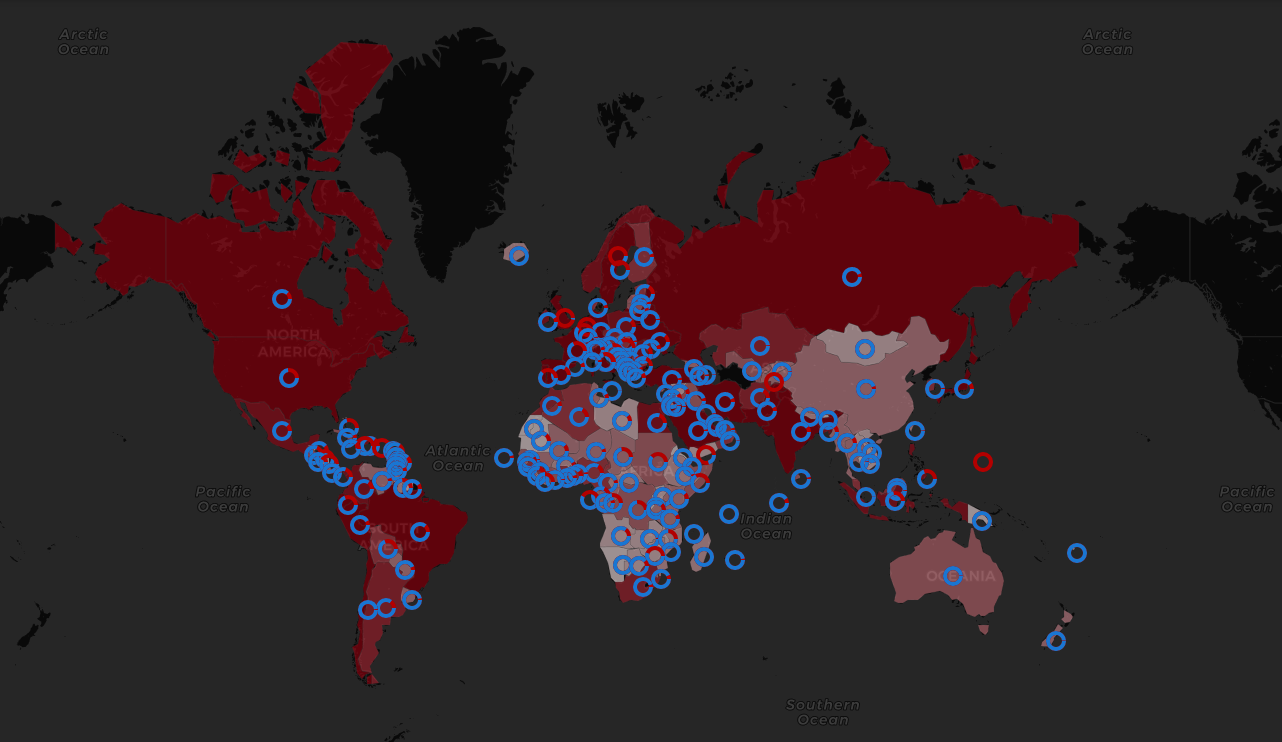Data, Maps and Colonialism in Times of Pandemic

Metadata
- Author: genderit.org
- Full Title: Data, Maps and Colonialism in Times of Pandemic
- Type: #snippet✂️
- Document Tags: #geospatial
- URL: https://genderit.org/articles/data-maps-and-colonialism-times-pandemic
Highlights
-
So far this story is one more in the matrix of modern cultures: inequalities, feelings of belonging and absurd paternalism. But the pandemic in 2020 has brought us a new phenomenon: the self-production of big data. Accompanied by the division between those who manage data to create information and those who contribute their data, while suffering the consequences of it. The quarantine finds those scholars who, because they are working from home, have the time to give back to the world all that the world has given them, and if by doing so they gain recognition, even better. (View Highlight)
- Tags: 👻 ai highlighted
-
The Corona Map(link is external) project offers a platform for mapping COVID-19 cases, recoveries, and deaths by country – it currently offers information on 181 countries. Likewise, it offers an infection mapping service. Through an automated form, combining personal data with a series of yes/no questions that subsequently translates into a personalised percentage of possible infection. By accessing your location, it automatically publishes the results in a world map, without prior notice. (View Highlight)
-
There is no need to imagine this scenario because unfortunately it already exists. The government of India has made available to its citizens a series of tracking apps concerning COVID-19, among which the so-called Aarogya Setu stands out. By using Bluetooth, Aarogya Setu can trace the relationships between its users and calculate the infection potentials that each one has. When a new positive case is detected, Aarogya Setu immediately alerts the authorities of all persons who were in contact with that individual.1 In other words, it grants full authority over the handling of personal data to the state. (View Highlight)
-
the Internet Freedom Foundation has voiced skepticism, arguing that use of such an application could prove controversial when it comes to individual privacy.2 Likewise, legal experts have expressed concern about the manipulation of data and the lack of representation in connection with Indian people’s access to smartphones.3 (View Highlight)
-
Within the current landscape, we could argue that a more just approach to information-based aid would be one in which all people have the autonomy to share or not share their situation – i.e. to contribute or not to data banks. Autonomy to choose to ask for help or to provide help, but above all, autonomy to accept, or not, to receive help. (View Highlight)
- Tags: 👻 ai highlighted
-
That is data based on a colonialist conception of society, which has historically divided us between those who devise aid and those who receive aid. The only thing that remains to be added, then, is that if we do not get off the map that represents hegemonic political interests, we will continue to be inserted into the structure of the oppressor and lose agency over our ontologies. (View Highlight)
- Tags: 👻 ai highlighted